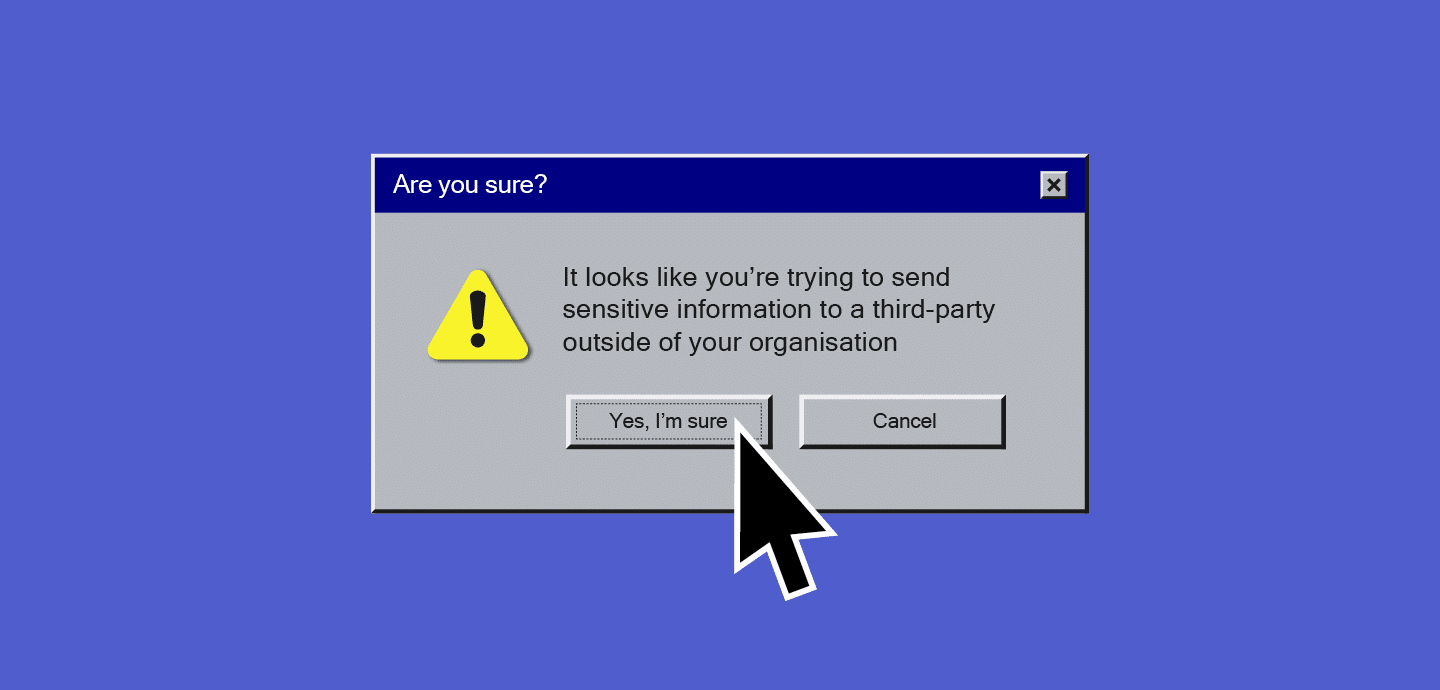
Unpacking the Cost vs ROI of Achieving ISO 27001 Certification
Table Of Contents:
Information security management is more than just a box-ticking exercise for businesses. For those who approach the subject strategically, the returns can be both attractive and tangible. However, the million-dollar question of how organisations can evaluate this elusive ROI inevitably arises. And where does ISO 27001 fit into this intricate puzzle?
ISO 27001, as we’ve said many times here on the ISMS.online blog is an international standard that provides the framework for an effective Information Security Management System (ISMS). It guides organisations in protecting their information through asset management, risk identification and mitigation controls, thereby reducing the risk of security breaches and increasing data integrity.
The importance of ISO 27001 in today’s business landscape is multi-faceted. It isn’t just about the badge on your website or your senior leadership’s excellent night’s sleep knowing the organisation’s data is protected. It’s about credibility, it’s about trust, and, more pragmatically, it’s about staying one step ahead of the game in this era of heightened cybersecurity threats.
Still, as many companies now navigate tricky financial decision-making, any investment must be critically analysed for its cost and potential return. As such, this blog aims to go beyond the buzzwords and break down the nitty-gritty of achieving ISO 27001 certification. We’ll dissect the cost, explore the potential ROI, and help put it all into perspective so organisations can make an informed decision.
Breaking Down the Cost of ISO 27001
ISO 27001 certification is a multi-tiered process, with each stage bearing its unique set of costs. Let’s break down each step individually to make sense of it all.
ISO 27001 Cost: Readiness Stage – £6,500 to £40,000
This is where the rubber meets the road. In the readiness stage, your organisation defines the scope of the information security management system (ISMS), pinpoints where sensitive information is stored, undertakes a risk assessment, and sets up the requisite controls and policies to mitigate those risks.
This stage also involves crafting a Statement of Applicability (SoA) and a risk treatment plan, training your team to uphold the ISMS and performing an internal audit to vet your readiness.
The cost spectrum for this stage can stretch from £6,500 to £40,000, mainly hinging on the route your organisation decides to take to get to this stage: DIY, consultant, or platform.
Option 1: DIY – The Deceptively Expensive Route
Counterintuitive as it may sound, the DIY option while appearing cost-effective on the surface, might burn a deeper hole in your pocket. By thrusting the mantle of leadership on an internal staff member or team, your organisation might incur costs between £25,000 and £40,000, given their salaries and the time they invest in this demanding stage.
Option 2: Consultant – A Beneficial Investment
Despite commanding average fees of £30,000, employing a consultant could prove to be a wise investment. The consultant shoulders most of the legwork, including the documentation and the internal audit, thus freeing up your team to concentrate on core functions.
Option 3: The Platform – A Cost-Effective Strategy
Here’s where things get interesting. Deploying a compliance platform can substantially slash costs. Automation and streamlining offered by these platforms can reduce workload, saving you valuable time and money.
For instance, if your internal representative leads the readiness stage, a platform such as ISMS.online can get them an 81% headstart towards the final goal straight out of the box. The resultant cost and time saving can be significant: a four-week investment would only amount to £2,500 instead of a whopping £40,000 over four months. Even with the platform costs included, this route emerges as the most cost-efficient.
ISO 27001 Cost: Audit and Certification Stage -£5,000 -£15,000
Securing an ISO 27001 certification calls for navigating two significant audits: the initial documentation audit, also known as Stage 1, and the subsequent certification audit, referred to as Stage 2. Organisations can anticipate an expenditure between £5,000 to £15,000 to hire an auditor for these critical phases.
The magnitude of the auditing fee varies quite considerably. Choosing one from the renowned Big Four (PwC, Deloitte, Ernst & Young, and KPMG) can inflate the cost, but in return, you’ll earn the certification from a high-profile, globally esteemed firm. Some businesses may consider this extra financial commitment worthwhile and value the prestige and recognition. Conversely, others may opt for a specialised, certified auditing firm that aligns more closely with their needs and budget.
Cost of ISO 27001: Surveillance and Recertification Audits – £20K-£23K
Earning your ISO 27001 certification isn’t the endgame. Keeping it requires annual surveillance audits for the first two years and a recertification audit in the third year. Although less exhaustive than the initial audits, the surveillance audits aren’t free, with costs averaging between £6,000 and £7,500 each. The recertification audit, resembling the original certification audit in scope and depth, can match the initial investment.
ISO 27001 Alignment vs Certification – A Low-Cost Entry Point
For some organisations, alignment with ISO 27001 without pursuing its certification can be a viable option. This approach, albeit less formal, often serves strategic ends.
- Cost-Efficiency: Organisations can cherry-pick pivotal controls relevant to their business model by aligning with the standard rather than certifying. This enables them to make financially savvy decisions without compromising the integrity of their security infrastructure.
- Relevance to Risk Profile: Not every organisation is knee-deep in sensitive data. Those with a lower risk profile, where sensitive data is handled minimally, may ascertain that alignment provides adequate security robustness without needing full certification.
- Operational Flexibility: Integrating practices at a more manageable pace without diluting the effectiveness of the standard is a tactical manoeuvre that may well align with an organisation’s current resource allocation and strategic planning. This also ensures that the core tenets of the standard are not lost in a rush to certify.
- Future-Readiness: Opting for alignment today doesn’t negate the possibility of certification in the future. In many ways, alignment demonstrates an unmistakable commitment to security while providing leeway for marshalling resources for eventual full-scale certification.
Nevertheless, the choice between alignment and certification is nuanced, requiring businesses to consider their unique operational landscape, risk profile, and stakeholder expectations. While the certification gold standard remains a laudable pursuit, it’s essential to remember that the ultimate goal is a fortified security posture.
What’s the ROI of ISO 27001 Certification?
Alright, we’ve decoded the costs of ISO 27001 certification. But is it truly worth it? Can the potential return on investment (ROI) justify this financial outlay? Let’s dive into it.
Mitigating the High Costs of Data Breaches
No organisation can afford to overlook the dire ramifications of data breaches in today’s digital landscape. These breaches, an insidious reality of modern business, entail not only direct costs such as forensic investigations, notification expenses, and legal fees but also indirect costs like reputational damage and customer attrition.
The ISO 27001 certification, by enhancing your firm’s information security procedures, empowers you to create effective mitigation strategies against such risks. According to the Ponemon Institute, the average cost of a data breach in 2023 stands at a staggering $4.24 million. Thus, the savings derived from avoiding such breaches through ISO 27001 can be substantial.
Avoiding Hefty Regulatory Fines
The past decade has witnessed an exponential rise in data security and privacy regulations across the globe, and the financial penalties associated with non-compliance have become increasingly demanding. Regulations such as Europe’s GDPR and California’s CCPA can cause significant financial strain on organisations that fail to comply.
Securing ISO 27001 certification can place your organisation in an advantageous position to meet many of the requirements of these regulations, thus sparing you from excessive penalties. Considering that GDPR fines can extend up to 4% of your annual revenue, the financial benefits of compliance are pretty straightforward.
Further Reading: You can check out our blog from Mark Sharron, which explains in detail how ISO 27001 supports GDPR compliance.
Earning Customer Trust: An Incalculable Return
In an era marked by heightened consumer awareness regarding data security, an ISO 27001 certification can be a powerful differentiator. This certification acts as an unequivocal endorsement of your commitment to safeguarding their information, fostering a sense of trust that can boost customer loyalty and drive business growth. While quantifying this ROI might be complex, dismissing its significance would be a strategic misstep.
Deploying Certification for Competitive Advantage
In fiercely competitive markets, an ISO 27001 certification can position your company in a class of its own. It can provide a competitive edge that could tip the scales in your favour when vying for sought-after contracts or achieving preferred vendor status.
Additionally, a less heralded but equally significant advantage of ISO 27001 compliance is the potential to remove the need for time-consuming security questionnaires when bidding for contracts. The rigorous compliance process can reduce the need to complete these exhaustive assessments, saving valuable time and resources.
Enhancing Tech Infrastructure and Streamlining Processes
When considering the ISO 27001 certification, it’s crucial to understand that the advantages extend beyond simply boosting reputation and outflanking competition. It is integral in refining your business’s technology infrastructure and operational processes.
Pursuing this certification often exposes inefficiencies and outdated security measures lurking in your operations, allowing you to revamp your systems into a leaner, more secure, and more effective setup.
For instance, consider the much-publicised data breaches of Equifax and Capital One. Rigorous implementation of ISO 27001 would have unearthed the security weaknesses that led to these high-profile breaches, demonstrating the tangible benefits of streamlining tech infrastructure and processes.
In this respect, ISO 27001 isn’t solely about warding off external threats. Its emphasis on optimising internal processes and controls enhances efficiency and resilience, which impacts the financial bottom line.
The heightened staff awareness around security issues can also act as a first line of defence against potential threats.
Improved Supply Chain Management
Vendor risks have the potential to ripple through an organisation, leading to significant financial and reputational losses. ISO 27001, recognising this critical aspect, necessitates that companies implement stringent policies and procedures for vendor evaluation and management.
As businesses become more intertwined and interdependent in the modern ecosystem, a company’s security posture isn’t just about its own practices but extends to its entire vendor network. Therefore, the ROI from ISO 27001, especially in the realm of vendor management, is an investment in long-term resilience and sustainability.
Common Challenges Implementing ISO 27001 and How to Overcome Them
Lack of Executive Buy-In:
Overcoming the lack of executive buy-in requires effective communication, strategic alignment, and demonstrating the value proposition of ISO 27001. Tailor your approach to your organisation’s executives’ specific concerns and priorities, and be persistent in securing their support.
Our recent State of Information Security Report highlighted the genuine risks of poor executive buy-in for infosec activities, highlighting an average of 50% additional investment in information security post-cyber incident versus those who had already invested up-front.
Resource Constraints:
In the current financial climate, everyone is being asked to do more with less, but good infosec drives good business and those that can articulate the benefits clearly set themselves up for success;
- Build a comprehensive business case that outlines the costs, benefits, and implementation roadmap for ISO 20701.
- Highlight the return on investment (ROI) and the long-term value it can bring to the organisation.
- Address any potential concerns or objections upfront and provide solutions or mitigation strategies.
We have created a simple guide to help you produce a compelling business case for your organisation – build your business case today.
Complex Regulatory Landscape:
Staying ahead of the complex regulatory landscape is crucial for organisations, and this is where SaaS platforms such as ISMS.online can come into their own by;
- Centralising compliance management for multiple standards
- Providing real-time updates on regulations as they’re amended
- Automating task workflows to ensure new requirements are flagged with the correct teams and resources internally
Taking the burden of staying up to date off your team so they can get on with the day-to
Crunching the Numbers: The Verdict
True, achieving ISO 27001 certification comes with a not insignificant price tag ranging from £6,500 to £78K. But when you juxtapose this against the potential benefits – mitigating the risk of multimillion-dollar data breaches, evading heavy regulatory fines, bolstering customer trust, improving operational capabilities and gaining a competitive edge – the ROI starts looking pretty impressive and presents a compelling case for its adoption.
The question organisations must ask themselves is not whether ISO 27001 is worth it but whether they can afford to operate without its protection and credibility.




